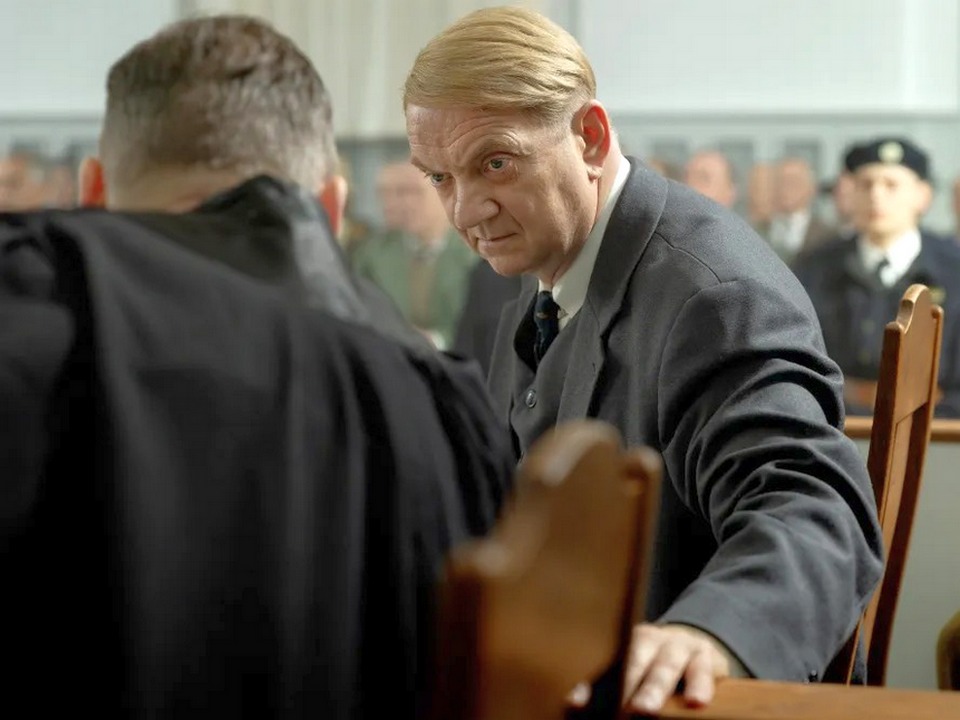
Vidkun Quisling, whose surname appears in English dictionaries as a byword for treachery, headed the puppet Norwegian civilian authority throughout the second world war. The real power was vested in the German Reichkommissar Josef Terboven. But director Erik Poppe in his 2024 movie Quisling the Final Days (prior to the minister-president’s execution in October 1945) is not interested in creating a bio-pic.
The movie centers on the last few days whilst Quisling is awaiting his execution by shooting in the notorious Akershus prison from whence the Gestapo had operated during the war years. Quisling is visited on a regular basis by his hospital chaplain, Peder Olsen, who attempts to persuade Quisling to show some regret for his treasonable activity. He very largely fails, although one scene does show both men in prayer on the last night before execution. However, there is no evidence in the historical record that much a prayer meeting did in fact occur.
Quisling never accepted he was a guilty man. He had expected at the end of the war to be allowed to remain at home as liberated Norway pursued a policy of reconciliation, but was astonished to be put in jail instead. “Don’t you realize I was head of state in Norway for five years?” he shouted at a guard presenting him with an almost inedible plate of herring and potato. He claimed throughout his trial that by cooperating with the nazis he had in reality saved Norway from communism. “It would have been far worse without me,” he screamed at one point.
Some of Quisling’s rhetoric resonates even today. Although 1,000 Jewish nationals were deported during the war to extermination camps, with only 12 surviving, he stated in court that he had done more for the Jews than anybody even as he denied being antisemitic. This does sound rather like one of the candidates in the race to be the next US president claiming to be every woman’s best friend. He also claimed to have saved Norway from the worst aspects of nazi occupation by visiting Hitler three times during the war. That’s true but he achieved next to nothing.
Quisling was a much more complex character than the movie suggests. He had even earned the British Empire Medal for his humanitarian work in the Ukraine in the 1920s. But George VI of course cancelled it in 1940. Quisling studied quantum mechanics and even devised his own philosophical treatise Universism in which he argued that some norms or patterns of behaviour were common to all religions and beliefs. None of this is within the purview of the movie which deals exclusively with the last few days in the dungeon. As a psychological drama, it’s a real insight into a troubled mind as Quisling and his priest debate the eternal issues of good and evil.








